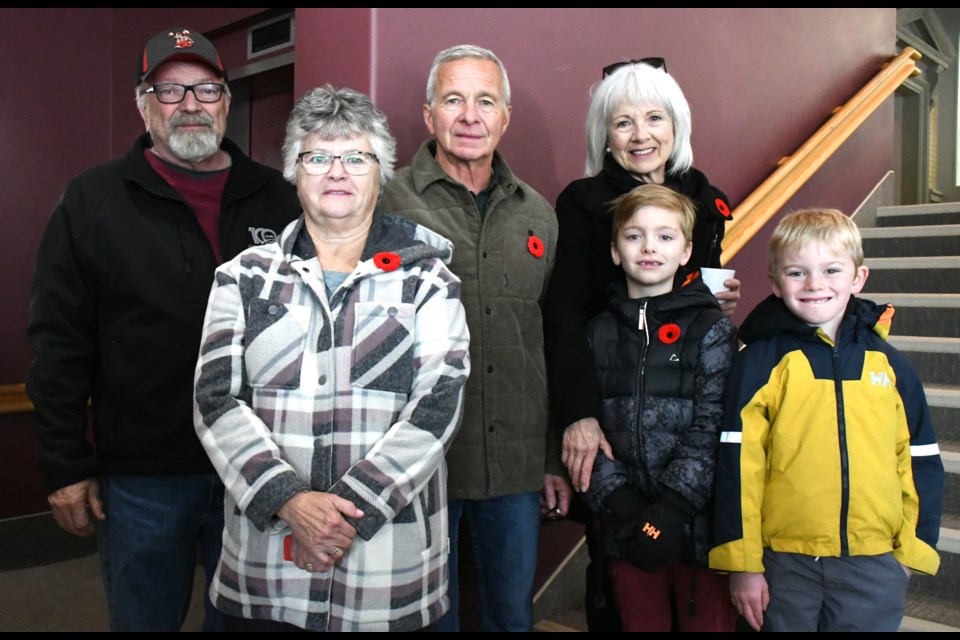MOOSE JAW — Nearly 20 relatives of the late James Burleigh Hill attended the city’s second-annual veterans’ banner program ceremony on Nov. 1, where they paid homage to a man they had never met.
Hill was born in Boharm west of Moose Jaw and joined the Royal Canadian Air Force (RCAF) during the Second World War. He flew a mission to lay mines in the North Sea on Oct. 26, 1944, but while coming home, was shot down in the English Channel near Heligoland Island, a place the Germans had fortified with heavy anti-air guns.
Hill’s nephew, Burleigh Hill, was one such family member — three generations were present — who attended. He noted none of the family ever met the airman and only knew of him as “that guy in the RCAF who never returned.”
“And (he has) pretty special meaning to every one of us. It kind of breaks a guy up just starting to talk about it,” he said, emotion in his voice. “He was only a boy and went overseas and just about made it through (to the war’s end) … .”
Bomber Command told the airmen to stay away from the island because of its defences, but the winds that night blew differently than forecasted and pushed Burleigh’s lead plane over the island, Calvin continued.
Despite the fierce anti-air flack thrown up, other planes in the formation recalled seeing one plane drop out of the sky, which they later assumed was Burleigh’s after his crew failed to return.
Calvin noted that his father and his cousin Marilyn Tighe’s father did significant research about Burleigh’s war experiences and combed through his logbooks to learn more about him. The men also created a memorial plaque and erected it on an island in northwest Saskatchewan that the government had named in honour of their brother.
The brothers also took a tree sapling from there and planted it on their farm near Boharm.
The family added that they also have connections to the Pascoe clan, who saw one son — Arthur Wellington — die in the First World War and two sons — James and Ernest — become mayors of Moose Jaw; both died while in office.
Matthew Samuel Collins
Al Collins, along with his wife Laurie and other family members, said he was impressed with how well the ceremony honoured his dad, Matthew, and the 24 other men. He noted that they submitted his father’s name after learning about the program from his daughter, Janie Fries, the vice-chairwoman of the heritage advisory committee.
Mrs. Collins also thought the ceremony was wonderful and “beautifully done,” while she was pleased to see nearly 100 people in attendance. She commended the city for initiating this project.
“It’s a great way to recognize the service of these guys. When you think back, they were pretty young guys and they put their (lives) on the line for us … (and) something we all believed in,” Mr. Collins said.
Matthew told his son “quite a bit” about his experiences from the First World War, but most stories were about the funny moments, times of camaraderie, and interesting things that happened among the soldiers.
One story that Mr. Collins recalled was about how his father went on a mission with 13 other men and was presumed missing since he had no way to contact his company. However, he returned two days later, the only one from his squad to survive the mission.
Matthew then wrote his parents a letter — which Al possesses — informing them that he was still alive and that they should ignore any information about his alleged disappearance.
“The 23rd (of March, 1918) was a real wild one for me. Fritz handed me quite a few pockets (bullets), but I missed them all,” the soldier wrote in his March 28, 1918, letter. “I expect a real warm time in the near future (during another raid) and will try to write you as often as possible. At present, I am still going strong.”




